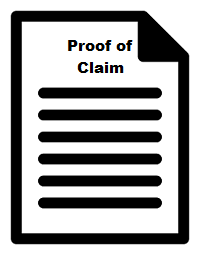What to Do When Your Patient Files for Bankruptcy

Understand Your Rights and Responsibilities
You’ve just received notice that one of your patients has filed for bankruptcy. What should you do?
The answer depends, at least in part, on the type of bankruptcy that was filed.
While there are actually six different types of bankruptcy available under the U.S. Bankruptcy Code, only two of these are commonly used by consumers: Chapter 7 and Chapter 13.

What Is an
Automatic Stay?
Once a bankruptcy petition is filed, all creditors are prohibited from attempting to collect from the petitioner. This is called an "automatic stay."
Creditors who violate the automatic stay are deemed to be in contempt of court. As a result, the bankruptcy court can impose fines, assess attorney's fees, and order the creditor to pay damages.
In
community property states, however, the collection of debts that were jointly incurred may still be pursued without violating the automatic stay.
For example, if an individual files a bankruptcy petition, and the petitioner was married at the time the debt was incurred, the creditor may pursue collection from the non-petitioning spouse.
In both Chapter 7 and Chapter 13, medical debt owed to physicians, hospitals and other healthcare providers are typically classified as “non-priority unsecured debt.” Often, but not always, debtors lack sufficient assets or disposable income to pay any of these unsecured creditors.
Chapter 7 Liquidation
In a Chapter 7 bankruptcy, the debtor’s financial obligations are virtually erased (with a few exceptions). In order to be eligible for a Chapter 7, the petitioner must have little or no disposable income.
The bankruptcy notice issued by the U.S. Bankruptcy Court includes information about a “341 Meeting" with the bankruptcy trustee. In a Chapter 7, the purpose of the 341 meeting (also known as a "Meeting of Creditors") is to determine if the debtor owns any unprotected assets. If so, these assets will be liquidated and the proceeds distributed to creditors.
After the 341 Meeting, all creditors will receive a notice from the court, indicating whether the debtor’s bankruptcy case was determined to be an “Asset” or “No Asset” Chapter 7. If the case is deemed "No Asset," then as an unsecured creditor, you will not receive any payment. (You can, however, pursue any amount owed by the patient's insurance company.)
On the other hand, in an "Asset" Chapter 7 bankruptcy, unprotected assets are sold to repay creditors, and unsecured creditors may be included in the distribution. To be eligible for this payment, you must file a Proof of Claim.
This document informs the court of your claim to receive a portion of the asset distribution. The Proof of Claim must be filed prior to the deadline stated on the Chapter 7 Notice of Assets sent to you by the bankruptcy court.
Chapter 13 Reorganization
Chapter 13 reorganization is designed for debtors who have a regular income and who do not qualify for Chapter 7 liquidation. It consists of a three-to-five-year repayment plan, and must include a proposed payment to unsecured creditors. This figure is based on the debtor’s disposable income.

Should You Attend the
341 Meeting of Creditors?
A 341 Meetings of Creditors is held for every type of bankruptcy. Despite the name, most creditors do not usually attend these meetings, particularly if the debts are unsecured.
The exception would be if the debtor owes you a significant sum, and you believe there is a discrepancy between the information stated in the bankruptcy petition and the information in your patient financial records.
As with Chapter 7, all creditors listed in a Chapter 13 bankruptcy will receive a "Notice of Bankruptcy Case Filing" and 341 Meeting. The purpose of this meeting in a Chapter 13 is to determine if the repayment plan proposed by the debtor is feasible and should be approved by the trustee.
Proof of Claim in a Chapter 13
In order to be paid in a Chapter 13 bankruptcy, you must file a Proof of Claim. Once the court confirms the debtor's Chapter 13 plan, individual claims are paid out based on debt priority.

Need a
Proof of Claim?
Has your patient filed for bankruptcy while CBSI was working on the account?
We can prepare and file a Proof of Claim on your behalf!
That is, secured debts are typically paid first, followed by so-called priority debts (e.g., domestic support obligations and taxes). Lastly, general unsecured debts are paid out, in accordance with the proposed amount approved by the bankruptcy court.
Preserving the Relationship
Depending on the state in which you practice, a bankruptcy may offer you the legal standing to sever your relationship with the patient. However, dismissing a patient without a proposed plan of care is typically not advised.
You’ll want to consult legal counsel in this matter. Many healthcare providers elect to maintain the patient relationship, despite the bankruptcy filing, out of ethical considerations, particularly if treatment is ongoing.
Let Us Know
If you receive a Notice of Bankruptcy regarding one of your patients, and you're a CBSI client, please notify us ASAP. Typically, we will have received the notice as well. However, there are occasions where we have not been included on the debtor’s mailing matrix.
Contact us at your earliest opportunity. We'll be glad to answer any questions you may have.
Recent Posts











Share On: